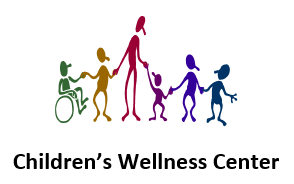Infant eczema is a skin condition that affects an estimated 25% of infants, according to the American Academy of Dermatology. The term “eczema” actually describes several similar skin conditions. The most common of which include:
- Atopic dermatitis
- Contact dermatitis
- Dyshidrotic eczema
- Seborrheic dermatitis (cradle cap)
These conditions can have slightly different causes and tend to appear in different locations on the body, but they all share similar symptoms, making them recognizable as eczema.
Signs and Symptoms of Infant Eczema
An eczema rash is characterized by rough patches of skin that can be excessively dry, itchy, scaly, crusty, or generally inflamed. Depending on your baby’s skin tone, the general color of an eczema rash can vary, sometimes appearing pinkish or red and, sometimes, appearing more purplish, brown, or grey.
What Causes Infant Eczema? Eczema Triggers and Additional Factors
Several factors can cause babies to develop eczema. While some causes, such as an overactive immune system or genetics, are less easily resolved, other causes of eczema are more easily avoided and addressed.
Common infant eczema triggers include:
- Exposure to skin irritants
- Fragrances
- Dyes
- Detergents
- Soaps
- Exposure to allergens
- Dust mites
- Pet dander
- Pollen
- Dry skin and low humidity
- Heat and sweat
- Stress
Eczema is a complex condition, and about half of the people with eczema have an additional, contributing genetic factor.
What to Do About Infant Eczema
Identify Triggers With a Symptom Diary
Keeping a symptom diary will help you identify the triggers and potential underlying causes of your baby’s eczema. You can use a calendar, notebook, printable template, or an app (like EczemaWise). You can also take photos that you can later share with our pediatrician.
In your diary, record the following:
- Symptoms (severity, appearance, and location)
- When the symptoms appear and how long they persist (note any changes)
- Your infant’s diet
- Note: If you are breastfeeding, you should also keep track of your own diet.
- Environmental factors and changes (temperature and humidity)
- Potential allergen exposures
- Potential exposures to other triggers (fragrance, soap, detergents, fabrics, etc.)
- Treatments used (emollient moisturizers, topical steroids, etc.)
The more detailed and consistent the diary, the better it will be able to help you and our pediatrician help your baby.
Avoid Irritants With Gentle Skin Care
A gentle skincare routine can help to soothe your infant’s skin, ease symptoms, and prevent future flare-ups. A lukewarm bath will reduce itchiness while cooling and hydrating the skin. (Water that’s too hot can irritate the skin and worsen eczema.)
Only use soaps and bath products that are fragrance-free and dye-free. Additionally, antibacterial soap can be overly harsh on a baby’s sensitive skin.
Only apply soap on body parts that might actually be dirty, such as your baby’s hands, feet, and genitals. Rinse the rest of their body with plain water, and be sure to rinse away soap thoroughly and gently.
Do not scrub the skin or rub the skin dry with a towel. Instead, gently pat your baby’s skin dry.
Laundry Detergent and Household Products
Use fragrance-free, dye-free laundry detergents and household products to minimize your baby’s exposure to potential irritants.
Stay Moisturized
Use infant eczema cream (or a thick, fragrance-free cream) to keep your baby’s skin moisturized. Use moisturizer all over after bath time and at least twice a day.
If the air inside your home is dry, use a humidifier to maintain a healthy level of indoor humidity.
Prevent Scratching
When your baby’s skin itches, they are going to try to scratch it. Do your best to prevent your baby from further irritating their skin or potentially breaking the skin by scratching too much. Keep their nails trimmed and consider infant mittens to protect their delicate skin.
Seek Medical Advice
When you first notice unusual signs and symptoms that might be eczema, we recommend seeing your baby’s pediatrician to get a definitive diagnosis.
In addition to recommending an eczema-friendly environment and hygiene routine for your baby, a pediatrician might prescribe or recommend a medical moisturizer (emollient) to help restore your baby’s skin barrier. In certain cases, a pediatrician might also prescribe a topical steroid to help reduce local inflammation.
If your infant’s eczema worsens or doesn’t improve after following your pediatrician’s recommendations, you should bring your child in for another appointment. If your child’s eczema begins to weep or crust, this could indicate a bacterial infection and the need for antibiotics.
Soothing Support and Guidance on Baby Eczema With Our Pediatricians
We understand how challenging and frustrating infant eczema can be for parents and how uncomfortable it can be for babies. Our pediatricians at Children’s Wellness Center are here to support and help you while finding a solution to soothe your infant.
If you have any questions about infant eczema or if you would like to request an appointment for your baby, please do not hesitate to contact us.

